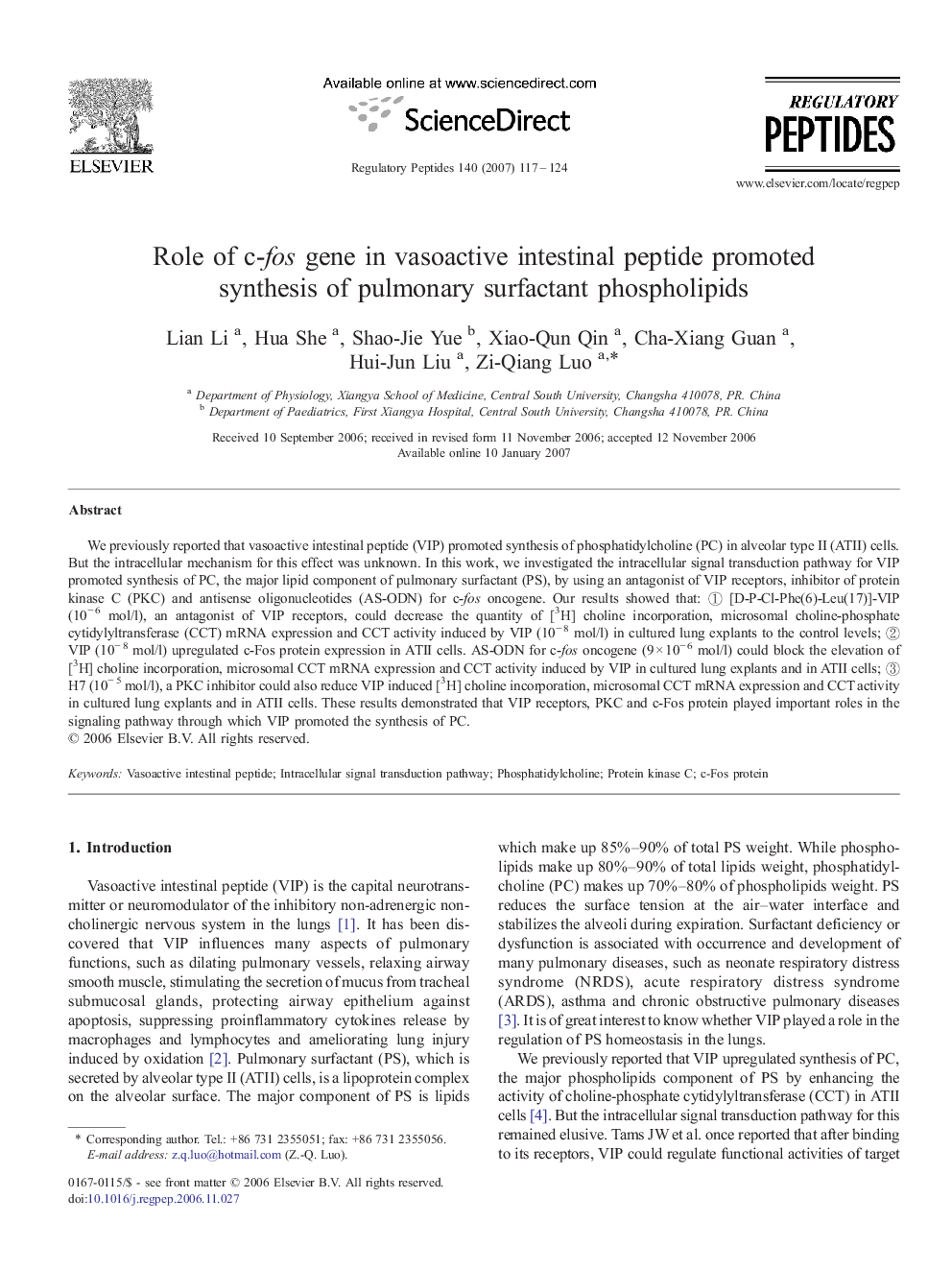| Article ID | Journal | Published Year | Pages | File Type |
|---|---|---|---|---|
| 2023272 | Regulatory Peptides | 2007 | 8 Pages |
Abstract
We previously reported that vasoactive intestinal peptide (VIP) promoted synthesis of phosphatidylcholine (PC) in alveolar type II (ATII) cells. But the intracellular mechanism for this effect was unknown. In this work, we investigated the intracellular signal transduction pathway for VIP promoted synthesis of PC, the major lipid component of pulmonary surfactant (PS), by using an antagonist of VIP receptors, inhibitor of protein kinase C (PKC) and antisense oligonucleotides (AS-ODN) for c-fos oncogene. Our results showed that: â [D-P-Cl-Phe(6)-Leu(17)]-VIP (10â 6 mol/l), an antagonist of VIP receptors, could decrease the quantity of [3H] choline incorporation, microsomal choline-phosphate cytidylyltransferase (CCT) mRNA expression and CCT activity induced by VIP (10â 8 mol/l) in cultured lung explants to the control levels; â¡ VIP (10â 8 mol/l) upregulated c-Fos protein expression in ATII cells. AS-ODN for c-fos oncogene (9 Ã 10â 6 mol/l) could block the elevation of [3H] choline incorporation, microsomal CCT mRNA expression and CCT activity induced by VIP in cultured lung explants and in ATII cells; ⢠H7 (10â 5 mol/l), a PKC inhibitor could also reduce VIP induced [3H] choline incorporation, microsomal CCT mRNA expression and CCT activity in cultured lung explants and in ATII cells. These results demonstrated that VIP receptors, PKC and c-Fos protein played important roles in the signaling pathway through which VIP promoted the synthesis of PC.
Related Topics
Life Sciences
Biochemistry, Genetics and Molecular Biology
Biochemistry
Authors
Lian Li, Hua She, Shao-Jie Yue, Xiao-Qun Qin, Cha-Xiang Guan, Hui-Jun Liu, Zi-Qiang Luo,
